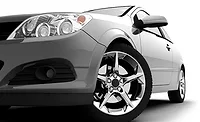Market Trends
Strong Growth Projected for Automotive Adhesive Tapes
Several key trends will help drive the 6.1% CAGR expected for automotive adhesive tape revenues through 2028.

Automotive adhesive tapes are lighter than mechanical fasteners such as screws and fasteners and simplify the automobile manufacturing process. The global automotive adhesive tapes market was valued at $8.7 billion in 2020 and is expected to account for $13.8 billion by 2028, according to a report by Reports and Data. This represents a CAGR of 6.1% during the forecast period. Major factors contributing to market revenue growth are a thriving automotive sector, the increasing production of automobiles, including electric vehicles (EVs), and growing demand for high-quality adhesive tapes as a lightweight adhesive solution.
Additional key factors accounting for revenue growth in the market include advances in adhesion technologies, increasing investments in research and development activities, more advanced and reliable adhesive solutions, and a growing use of eco-friendly and sustainable automotive adhesives. For example, tape manufacturers have introduced enhanced adhesive and sealing solutions for automobiles like automated application capabilities and lightweight adhesive tapes to seal panel joints and edges, helping to prevent damage caused by corrosion and high physical stress.
Tape Types
It is important to select the right kind of materials for these tapes in order to ensure improved strength and resistance, as well as faster setting time. The substrates for these tapes are usually made of materials such as plastic polymers (including polyvinyl chloride and polypropylene), paper, foam, cloth, and foil. Some commonly used adhesive chemistries include acrylics, epoxy resins, silicones, rubber-based, and polyurethanes. These materials provide high strength and durability, high flexibility, robust environmental resistance, low shrinkage, and superior resistance to chemical damage and extreme temperatures.
The most commonly used types of automotive adhesive tapes include pressure-sensitive adhesives (PSAs), heat-activated tapes, water-activated tapes, and non-adhesive tapes or laminates. PSAs adhere firmly to varying surfaces and do not require heat or water activation for bonding to materials like plastic, paper, glass, or metal.
Heat-activated adhesives are suitable for aggressive bonding to surfaces such as rubber and PVC-based plastic materials, while water-activated tapes are used to seal boxes and containers. Non-adhesive tapes are self-adhering, and a common example of this type of adhesive tape is PTFE thread-sealing tape. Hence, key applications of automotive adhesive tapes include device shielding and masking, interior wire harnessing, surface labeling and protection, electrical insulation, and mounting of exterior parts.
Additional details are available at www.reportsanddata.com.
Note: Opening image courtesy of Pgiam via E+ Collection via gettyimages.com.
Looking for a reprint of this article?
From high-res PDFs to custom plaques, order your copy today!




.webp?height=200&t=1634732409&width=200)

